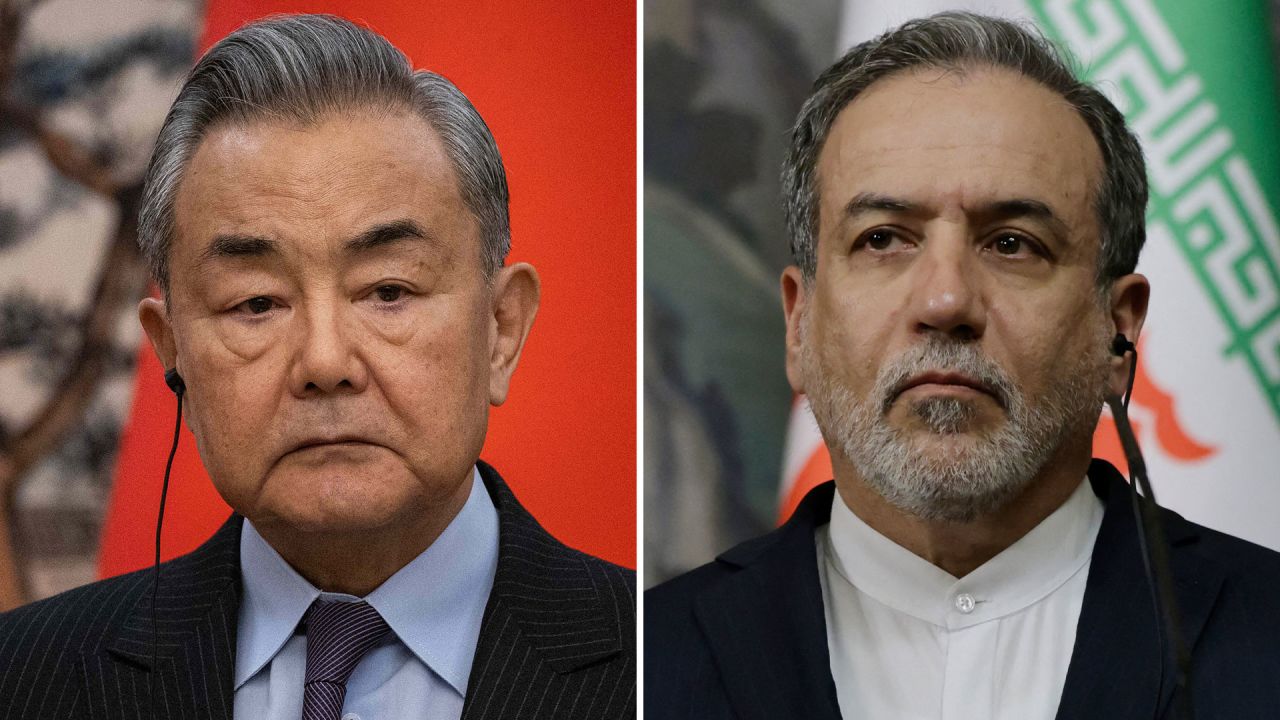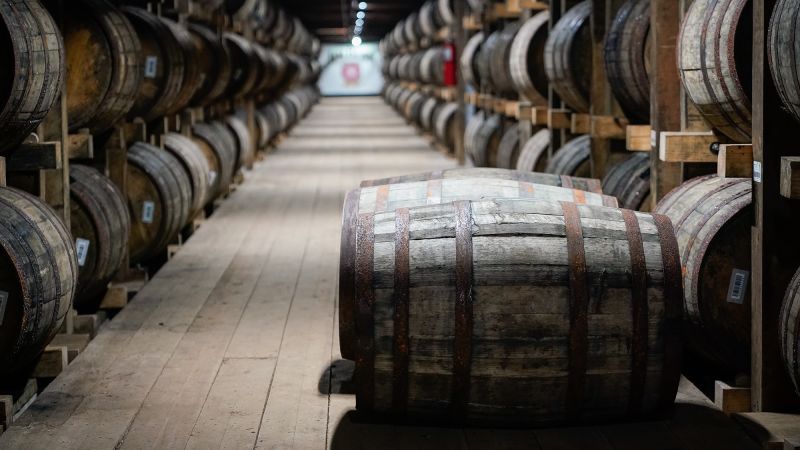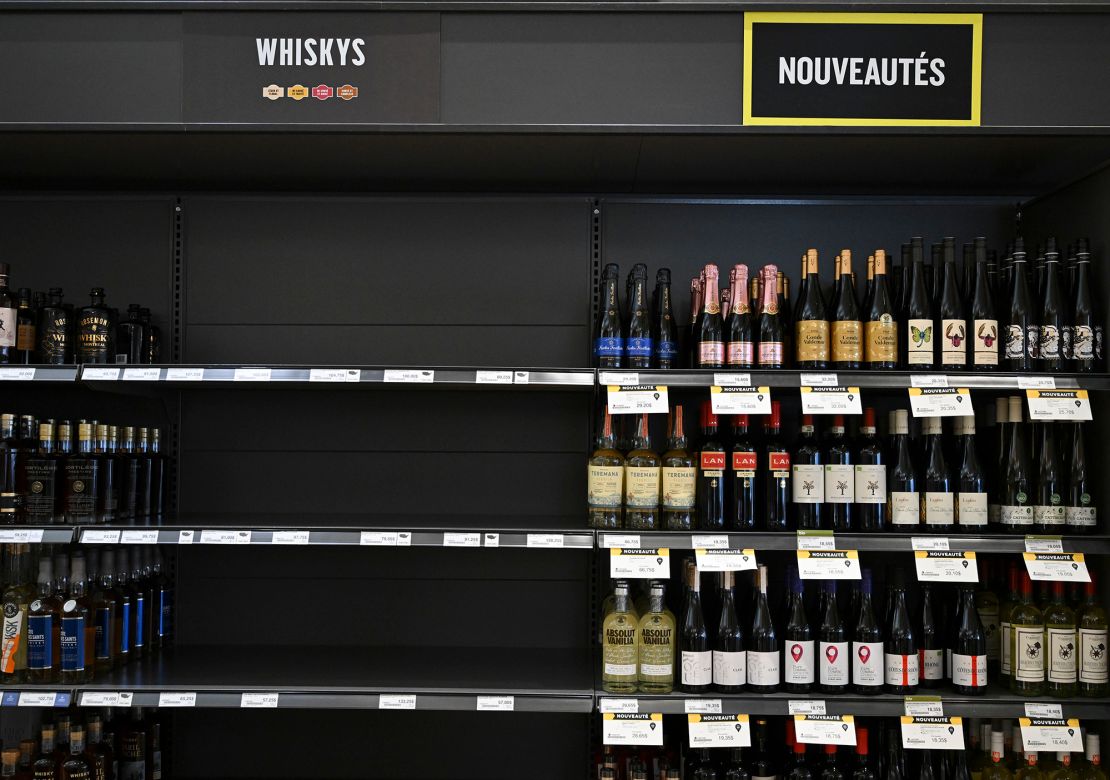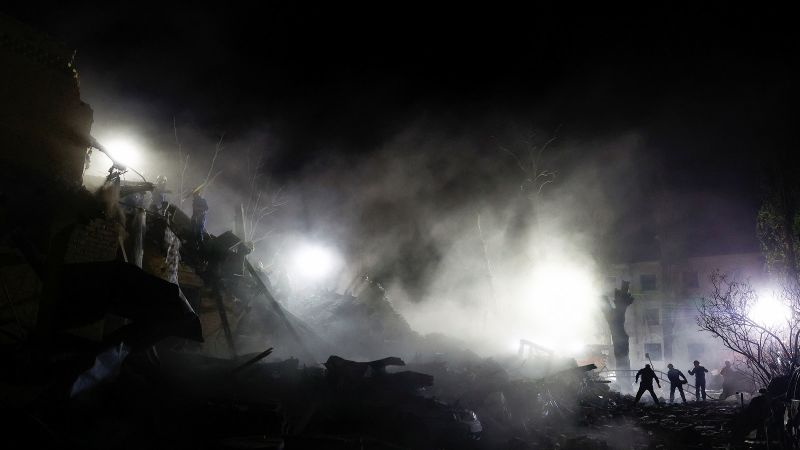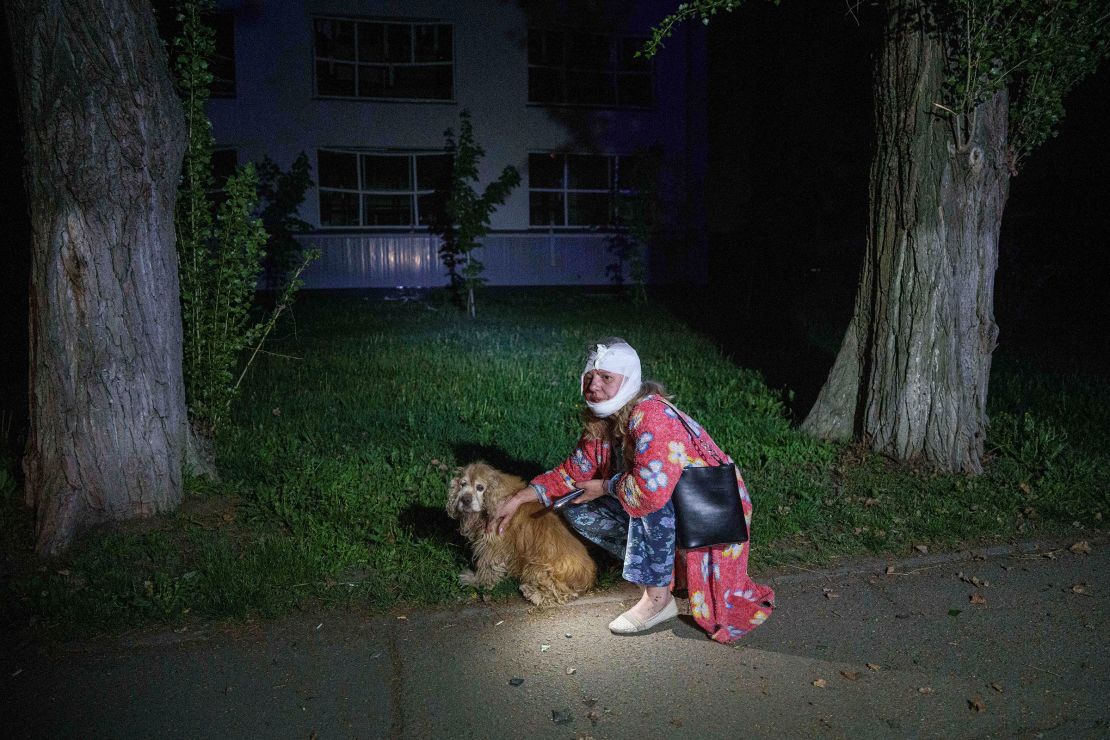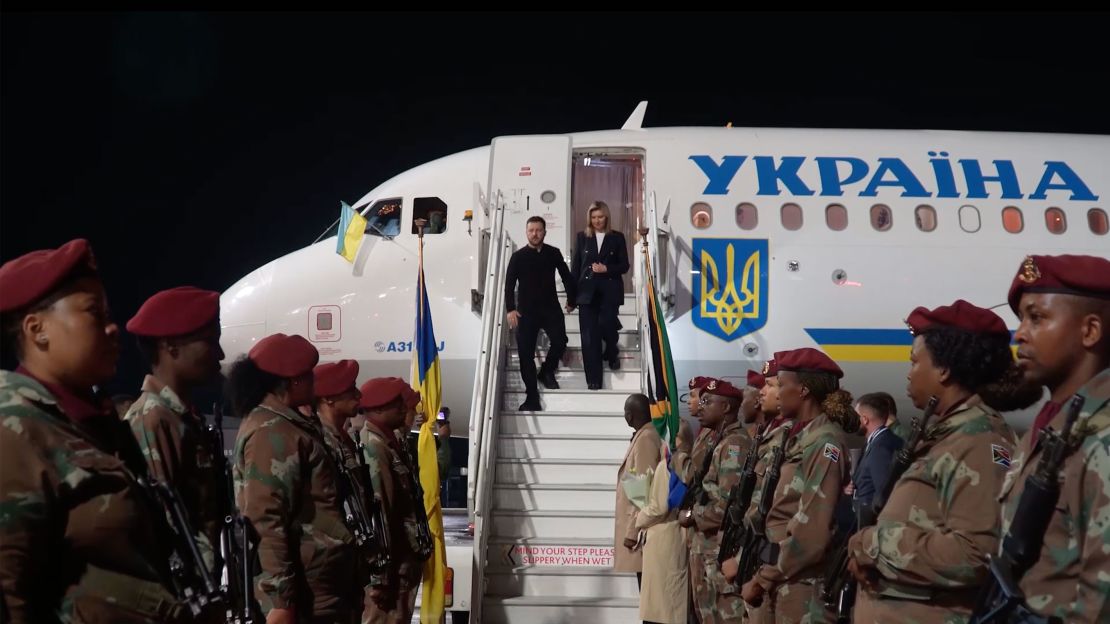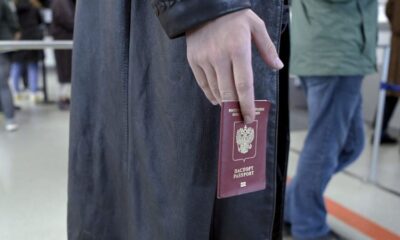CNN
—
She’d spent most of her life “checking off boxes” in order “to be deemed a success,” but as New Yorker Melissa Vargas approached her 30th birthday, she started to question the direction she was going in.
While she was “killing it” in her career in digital marketing and had “done everything everyone told me I’m supposed to,” Melissa felt that she wasn’t “really experiencing new things,” and had gotten way “too comfortable.”
After taking an extended trip to Europe for a wedding in 2016, Melissa, who says she hadn’t traveled much further than Mexico or the Caribbean up until that point, paid a visit to Munich, Germany and instantly felt a change in herself.

“People were just enjoying life,” Melissa tells CNN Travel, explaining that “this concept of relaxation,” seemed foreign to her as everything was “always go, go, go” in the Big Apple.
A few months after returning home, Melissa landed a job at a German agency, and went on to relocate to Munich in late 2017. Nearly eight years later, she’s still there.
“Honestly, it was the best decision I ever made,” says Melissa. “Looking back now, if I hadn’t done it then, I would have never done it.”
Reflecting on her big move, Melissa explains that she’d grown tired of the “work hard, play hard mentality” she was accustomed to in New York, and was ready for a change.
“I think by the time I was 28, I started to realize, there has to be more to life than just this,” says Melissa, who was born in the Dominican Republic, but raised in the Big Apple “from infancy.”
“I never really felt like I fit in in New York,” she adds. “I think I was just at a point where I needed something different.”
Melissa soon realized that she’d been living her life based on the things that other people wanted for her and hadn’t really taken the time to decide what she wanted for herself.
“I grew up in a very bad neighborhood, made it through school, got a scholarship for high school, got a scholarship to Syracuse University and graduated with two degrees,” she says.
“Everything that your immigrant family tells you you need to do.”
Feeling as though she needed to step out of her comfort zone, Melissa decided to put herself “in the most uncomfortable situation” she could imagine.
For her, this was moving to a country she had only visited once and didn’t speak the language.
“I felt like I had been hindered by kind of closing my circle off,” she says. “New York is such a bubble sometimes. You don’t realize it until you’re out of it…”

She began the application process for a Munich-based job shortly after returning to the United States, and was thrilled to be offered the position.
According to Melissa, her workplace helped her through the process of applying for a German working visa — which is granted to non-EU citizens with a job offer from a German company — hiring a lawyer for her, making the transition much easier.
“I took a month off,” Melissa says. “And then it was literally packing up my life, which is like 28 years into three suitcases. I had to give up so many beautiful shoes.”
After bidding farewell to her friends and family, Melissa flew to Munich, via Lisbon, Portugal, to begin her new life.
“I landed on a Sunday,” she recalls, describing her disappointment when she found that pretty much everywhere was closed, so “there was nothing to eat” when she arrived at her apartment.
The following day, Melissa set about obtaining her tax ID information, which needs to be obtained in person in Germany, from the local tax office in order to begin her new role.
“It took another two to three weeks before I was able to even step foot in the office” she says.
During her first few months in Munich, Melissa did her best to immerse herself into Bavarian culture, and loved how exciting and new everything felt.
“You’re like, ‘I’m here. I’m making it happen like ‘Emily in Paris.’ I’m gonna do it,’” she says.
“Mind you, this was before ‘Emily in Paris.’ “I was ‘Melissa in Munich.’ So, unprecedented at the time.”
However, even seemingly simple tasks like going to the supermarket proved to be incredibly taxing at times.
“I spent two hours there because I had no idea what the hell I was buying,” she says.
Although she loved being in Munich during the festive period, and visited many of the local Christmas markets, when the New Year rolled around, it was “super cloudy” and “raining all the time,” and Melissa began to question her decision to uproot her life.
“You’re like, ‘Oh, wow. Did I really sign up for this?’” she recounts, noting that the first year spent living in a new destination is “always the hardest.”
“You could decide after a year that maybe this isn’t for you,” she concedes, admitting that she considered giving up at times.
“But I think I was so hell bent on making it work that I was like, ‘This is the uncomfortable. If you succeed in this, and then in the end, you’re like, ‘I still want to go back,’ New York will always be there.’
“And I kept telling myself that.”

Melissa admits that it took a while for her to adjust to the slower pace of life in Munich, but she ultimately found this to be a huge reset for her.
“It’s taken me such a long time to honestly undo from all the years of living in New York,” she says.
Melissa goes on to explain that Sundays in Germany are known as “Ruhetag,” or a quiet day, and “you’re not supposed to drill or play music.”
“I play music, because I’m Latin,” she adds. “But other than that, I try not to do heavy lifting.”
Germans are renowned for their directness, and Melissa stresses that this is one cultural difference that she’s had no trouble adapting to.
“This is another part of why I felt misplaced in New York,” she admits. “I am super honest, probably sometimes to my own detriment. So coming here, it was a relief, because these people were just as honest as I am…
“That’s why I feel like I connect more with the Germans… It was nice to be in a place where I didn’t have to hold my tongue all the time.”
While Melissa acknowledges that Germany has a reputation of being an incredibly hard-working nation, she’s found that there’s “a big emphasis on balance.”
“It’s crazy because when I was telling my friends I was going to Germany, their first impression was, ‘Oh my God. They don’t relax. They are always working,’” she admits.
“I don’t think it’s necessarily completely true. They are hard workers… But I try to really embrace this idea of balance and giving myself space.”
Melissa adds that she was thrilled to learn that Germany has so many public holidays — nine in total — each year.
“So you get a lot of vacation,” she says, adding that she went from “10 vacation days a year to like 30.”
Melissa loves the fact that people in Germany seem to be “really big on nature,” and she often spends the whole day outside during summertime.
“Actually, I don’t even own a TV,” she says. “That’s the crazy part. I just decided, I really need to embrace this, and it’s got to become part of the lifestyle that I live, which I really, really appreciate.”
When it comes to the cost of living, Melissa has found Germany to be much more affordable than the US, pointing out that she’s able to “fill her fridge” for around 100 euros ($114.)
“Everything’s super accessible, super affordable, and the quality is just so much better,” she says.
“Even when I go back to New York now I actually refrain from buying meat. I just think that the quality has gone down.”
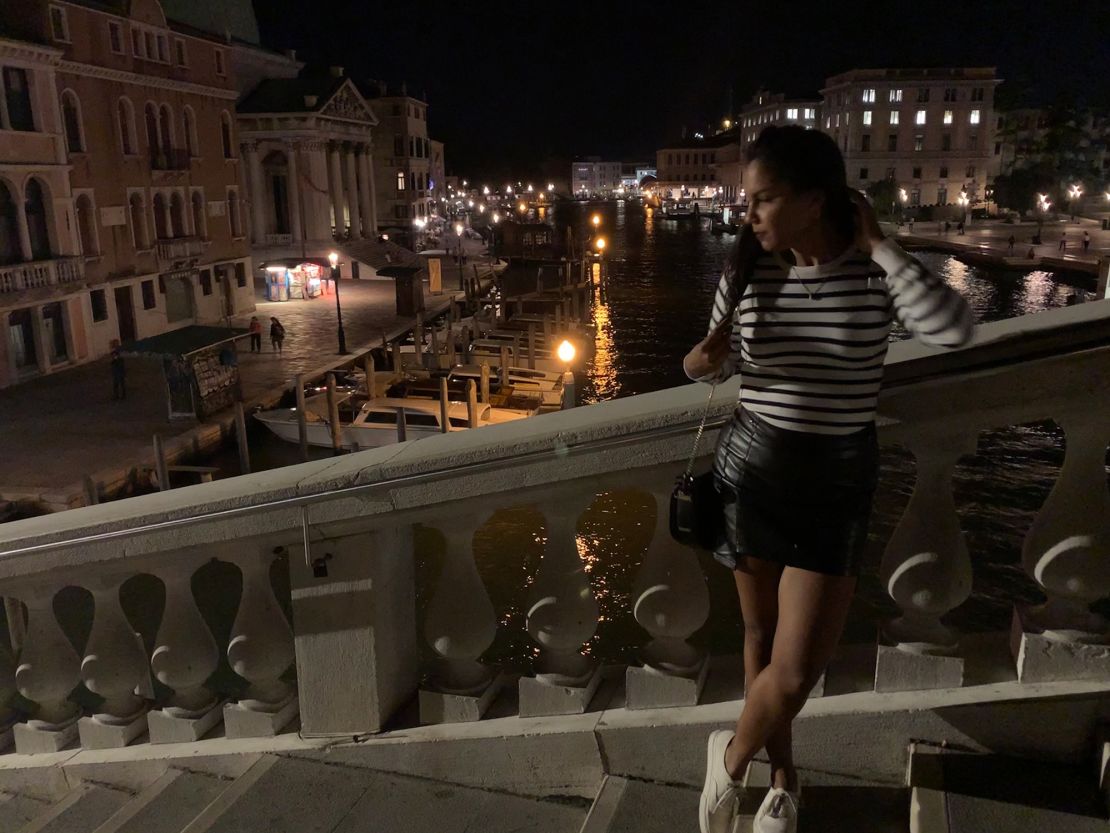
She points out that she feels incredibly secure in the “super safe” country — Germany is often ranked among the safest countries in the world — explaining that she’s had to train herself to stop looking over her shoulder before she puts her key into her apartment door.
”I think the worst thing that’s happened to me was that my bike was stolen one year,” she says,
While she’d initially only planned to spend a few years in Germany, this quickly “turned into eight.”
“And now I’m a permanent resident,” she adds. “So I don’t see myself leaving.”
Melissa was already bilingual when she moved to the country, speaking both French and Italian, as well as English, and assumed that she’d pick up German easily.
However, she “totally underestimated” how hard it would be.
“German is really difficult,” she says, adding that she put a lot of time and effort into mastering the language and is now at a point where she can visit her doctor and speak in German, and text back and forth with her German friends.
“I’m one of those people, when I learn a language, I need to know every single nuance,” she explains.
“And the crazy thing about German is there’s always a reason and a rationale behind everything.”
When questioned about the current political tensions in Germany, where far-right parties have been moving from the political edges to the mainstream in recent years, Melissa says that she’s aware of the headlines, but it isn’t something that has an impact on her day to day life.
“I have not felt the type of political ideologies that make me feel unwelcome or unsafe,” she says, adding that she felt more exposed to political divisiveness while she was in the States.
After nearly a decade in Germany, Melissa can’t ever see herself returning home and feels as though there’s little left for her back in New York.
“Some of my friends are here in Europe,” she says. “And a lot of my other friends have moved to other cities.
“Everybody has left New York. And for me, I grew up there. It was great back then. I don’t really know how I could live there now.”
Melissa has visited various European destinations during her time in Germany, including Italy, France and Spain, and admits that she’s toyed with the idea of moving to the latter, which is where her maternal grandmother is originally from.
However, she says she’s more than happy to stay put for now.
“I’ve always been interested in finding out more about the Spanish side of my family,” she says. “I have not found anybody that is connected to my genetics, unfortunately, here in Europe, at least.
“I think my end goal will be to live in Spain. For now, I’m really quite enjoying living in Germany.”
Melissa says she’d urge anyone considering a move to a new country to be as “open” and “considerate” as possible throughout the process.
“I think being open minded was the biggest thing. You’re uncomfortable all the time,” she says.
“You’re in environments that are completely new to you. Don’t fall back on your tendencies. Embrace the change. Embrace the openness with open arms.
“Everything about a new experience is going to teach you something better, and you’re going to improve yourself.”
Over the years, she’s managed to build up a network of friends in Munich, and was able to lean on her new found community for support when her beloved mother passed away.
“Having that community was such a big thing…” she says. “My friends were really the basis of my support system. And I think that solidified it for me.”
While she misses some aspects of her life in New York, particularly the restaurant scene, the fashion and diversity, Melissa stresses that stepping outside of everything she knew and entering a new space totally on her own has been hugely liberating.
She has absolutely no regrets about her decision to leave the US, and feels as though she’s grown as a person tremendously during her time in Germany.
“I was always around family and friends my whole life,” she explains. “There was always a method and there was always a person to help me out.
“And in this situation, the only person that could help me was myself… I needed to give myself the opportunity to grow.”


